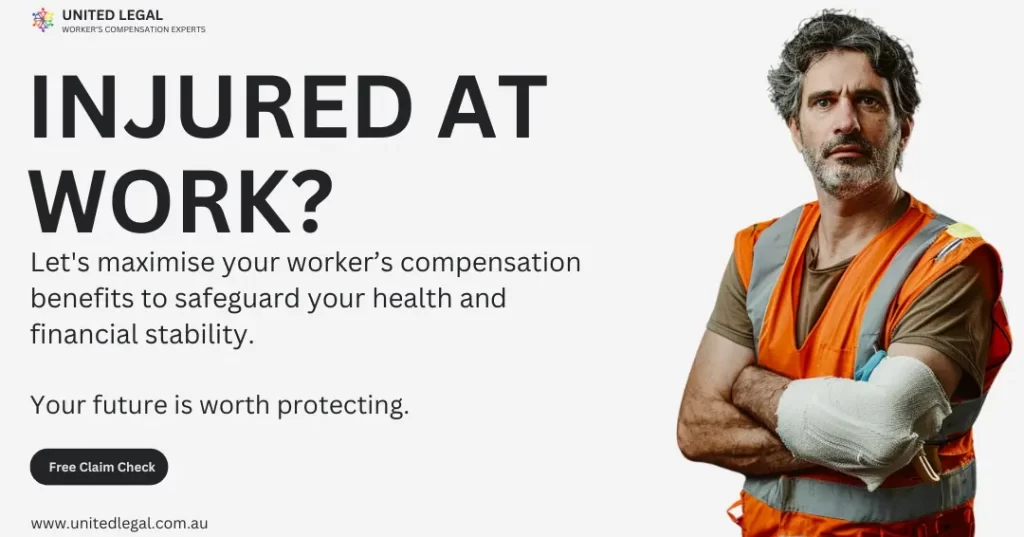Let’s face it, getting hurt at work is a real bummer. But hey, at least there’s workers compensation to help you out while you get back on your feet. The thing is, how long exactly can you stay on this sweet support system? This guide will break it down in a way that’s easier to swallow than hospital food (hopefully yours was better!).
Workers Comp in Australia: Your Mates Got Your Back
Workers compensation is like insurance, but instead of dropping your phone and cracking the screen, you bump your elbow on the job and, well, things get ouchy. It helps with bills and lost income while you heal. Pretty neat, right?
Since each state runs its own show, there are different authorities handling workers comp claims. Here’s a quick list to keep things handy:
- New South Wales: Workers Compensation Commission of NSW
- Victoria: WorkCover Victoria
- Queensland: WorkCover Queensland
- South Australia: ReturnToWork SA
- Western Australia: WorkCover WA
- Tasmania: WorkSafe Tasmania
- Northern Territory: WorkSafe NT
- Australian Capital Territory: WorkCover ACT
Why Knowing Workers Compensation Time Limits Matters
Think of workers compensation time limits like that free coffee voucher you get with your first purchase – it’s good to know when it runs out. This way, you can plan your finances and recovery without any nasty surprises. While getting better should be your top priority, understanding the timeframe for benefits helps you manage expectations and take action if support is nearing its end.
Things Affecting How Long You Stay on Workers Comp
There’s no magic number for how long you can stay on workers comp. It depends on a few key things:
- State Laws: Remember how each state has its own workers comp authority? Well, they also have their own rules about workers compensation time limits.
Here’s a quick cheat sheet (but always check the official sources for the most up-to-date info):
| State | Maximum Duration |
|---|---|
| NSW, VIC, QLD, SA | Up to 5 years |
- Injury Ouch Level: A sprained ankle will likely heal faster (and get you back on the job) compared to a broken leg. So, the seriousness of your injury plays a big role in how long you receive support.
Reaching Maximum Medical Improvement (MMI) – Not a Video Game Boss
Imagine a finish line for your recovery. That’s kind of what MMI is. It’s the point where your doctor says, “Hey, you’ve reached your peak improvement, and it’s unlikely to get much better from here.” This MMI thingy can influence how long you stay on workers comp.
For example, if your injury heals completely with no lasting problems, the benefits might stop once you reach MMI. But if you have some permanent limitations, the support might continue beyond the typical timeframe, depending on your state’s rules.
Okay, So How Long Does Workers Comp ACTUALLY Last?
There’s no one-size-fits-all answer, but here’s a general idea:
Maximum Chill Time: In most states, workers comp payments can last for a maximum of five years from your injury date.
Weekly Payday: You might get weekly income support payments for a specific period, ranging from 130 to 260 weeks depending on the state. Remember, these payments are usually a percentage of your pre-injury earnings.
Important Reminder: These are just ballpark figures, and there can be variations between states. So, the best way to get the most accurate info is to check your state’s specific workers comp scheme. Here are some resources to help you out:
- Safe Work Australia: https://www.safeworkaustralia.gov.au/
- Individual State/Territory Workers Compensation Authority Websites: Each state/territory authority website has all the details on their scheme, including workers compensation time limits for benefits.
Beyond the Time Limits: Exceptions and Special Cases
The general workers compensation time limits we discussed are a helpful starting point, but there are situations where benefits can extend beyond the standard timeframe. Here’s a deeper dive into some exceptions:
Serious Injuries: As mentioned earlier, if your work injury results in a permanent impairment exceeding a specific threshold (usually around 20-25% whole person impairment, but this can vary by state), you might be eligible for ongoing support beyond the typical five-year limit. This is because severe injuries can significantly impact your earning capacity and overall quality of life.
Gradual Onset Conditions: Some work-related illnesses develop over time, making it difficult to pinpoint an exact injury date. For example, repetitive strain injuries (RSI) or occupational asthma might not have a clear starting point. In such cases, some states allow claims to be lodged even if the symptoms manifest after the general time limit, as long as you can demonstrate a connection to your work environment.
Mental Health Injuries: Work-related stress and psychological trauma are increasingly recognized as valid work injuries. If a traumatic workplace event triggers mental health issues like depression, anxiety, or post-traumatic stress disorder (PTSD), you might be entitled to workers compensation benefits, even if the physical injury itself seems minor. Remember, mental health is just as important as physical health, and some states have provisions for ongoing support in such cases.
Change in Medical Condition: Sometimes, an injury initially thought to have a good prognosis takes a turn for the worse. If your condition deteriorates after reaching MMI, and this worsening is directly related to the original work injury, you might be eligible to reopen your workers compensation claim and receive further benefits.
Mistakes and Delays: Nobody’s perfect, and mistakes happen. If there was a delay in reporting your injury due to a genuine reason (like being unaware of your rights or the injury’s severity developing later), some states allow for an extension on the workers compensation time limits. Additionally, if your employer failed to notify the relevant authorities about your injury, it might not affect your eligibility for benefits.
Important Note: These are just some of the exceptions to the standard workers compensation time limits. The specific rules and eligibility criteria will vary depending on your state or territory. It’s crucial to consult the relevant workers compensation authority or seek legal advice to understand if any exceptions apply to your situation.
Navigating workers compensation can get complex, especially with time limits and varying state regulations. If you’re unsure about your eligibility or have questions about your specific situation, don’t hesitate to reach out for professional guidance. Contact United Legal Lawyers today. Our team of experienced workers compensation lawyers can help you understand your rights, navigate the claims process, and ensure you receive the maximum benefits you deserve. We offer a free consultation to discuss your case, so don’t wait! Call us at (02) 6295 2283 or visit our website at https://www.unitedlegal.com.au/ to schedule a consultation and get the support you need. Remember, getting back on your feet after a work injury is your priority, and United Legal is here to help you every step of the way.







